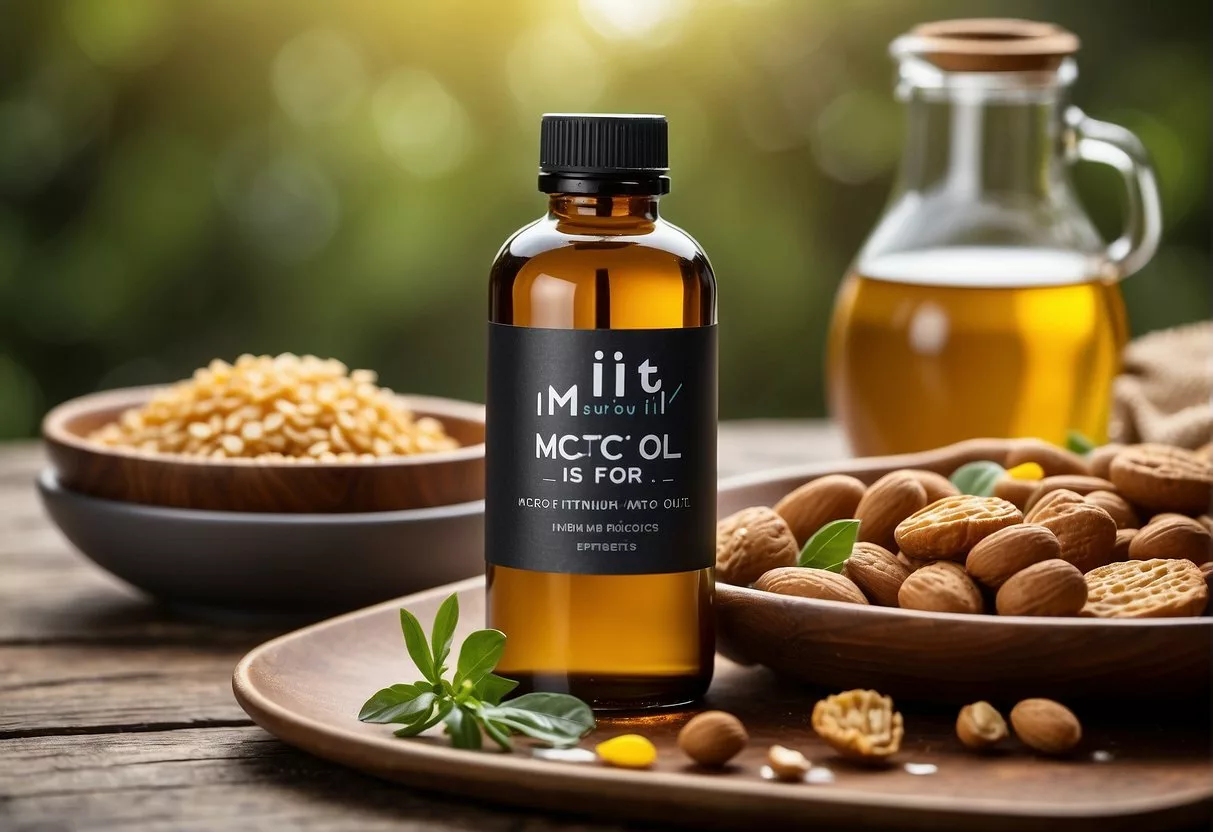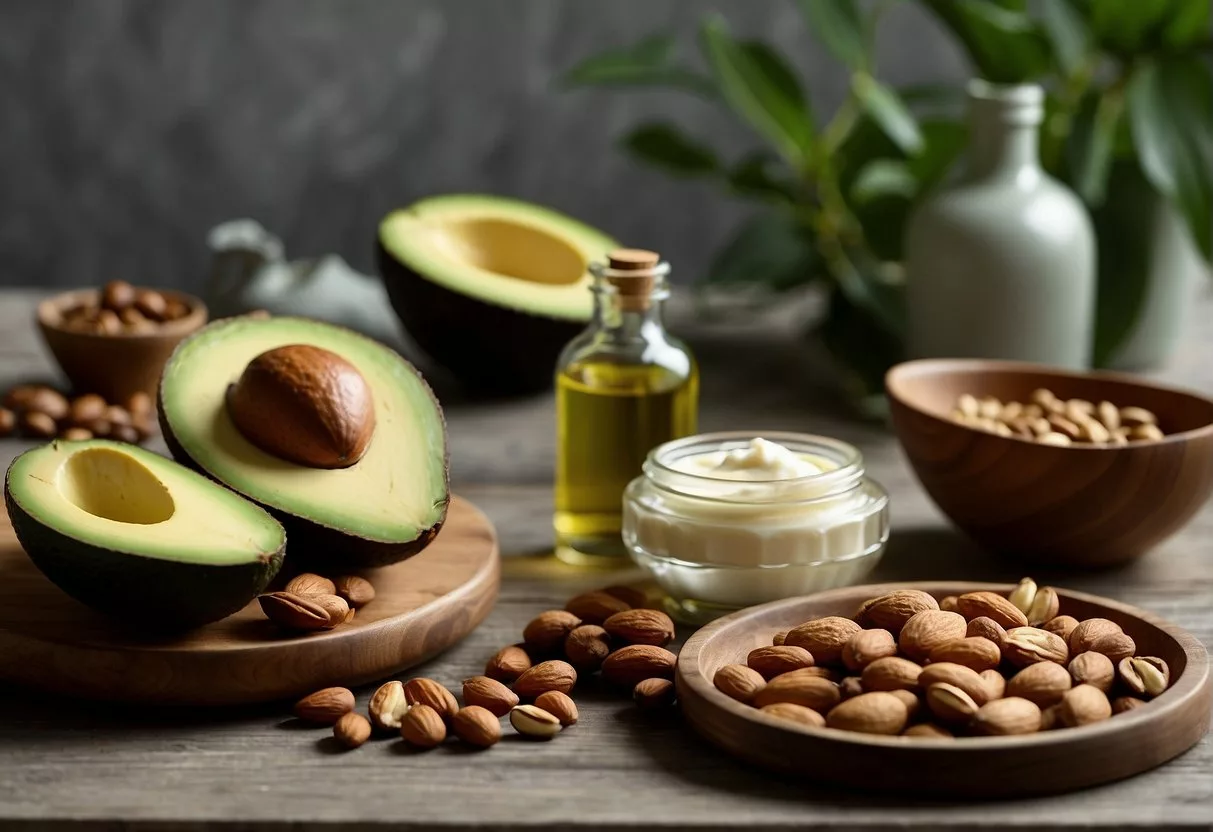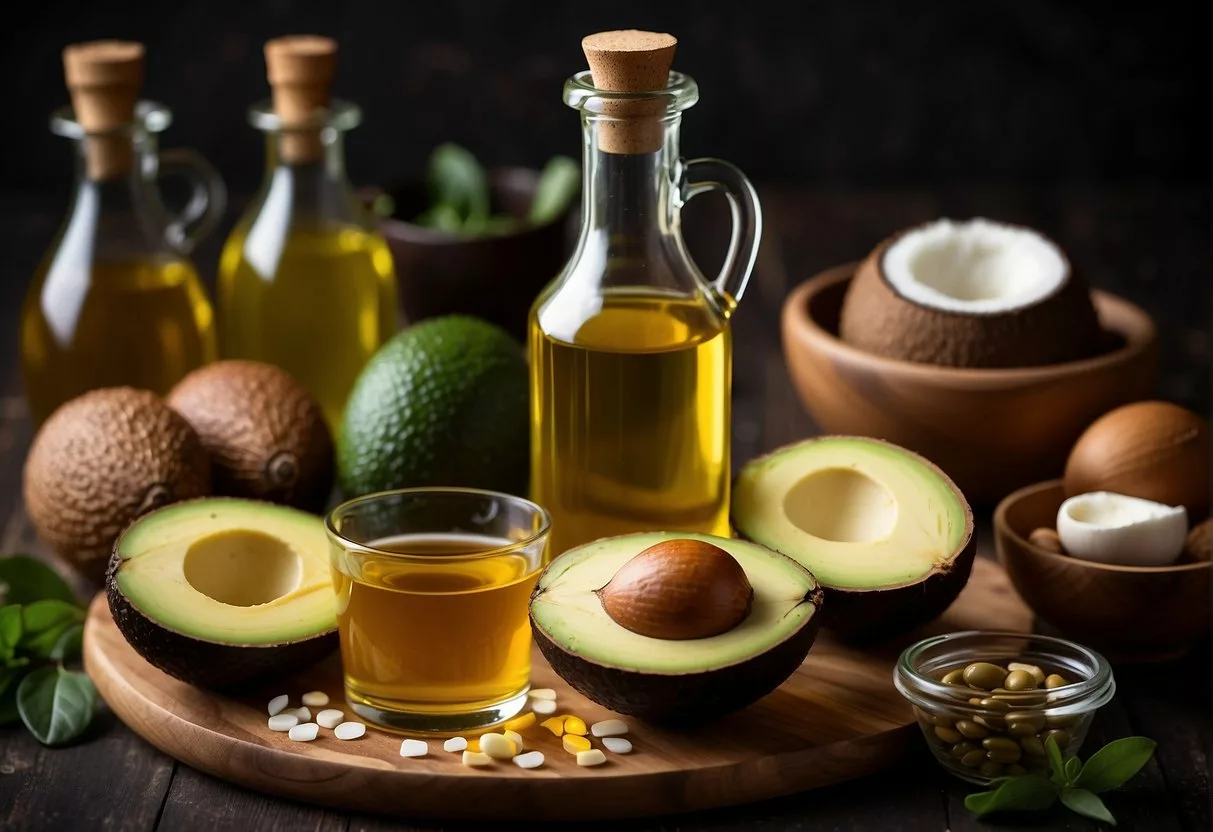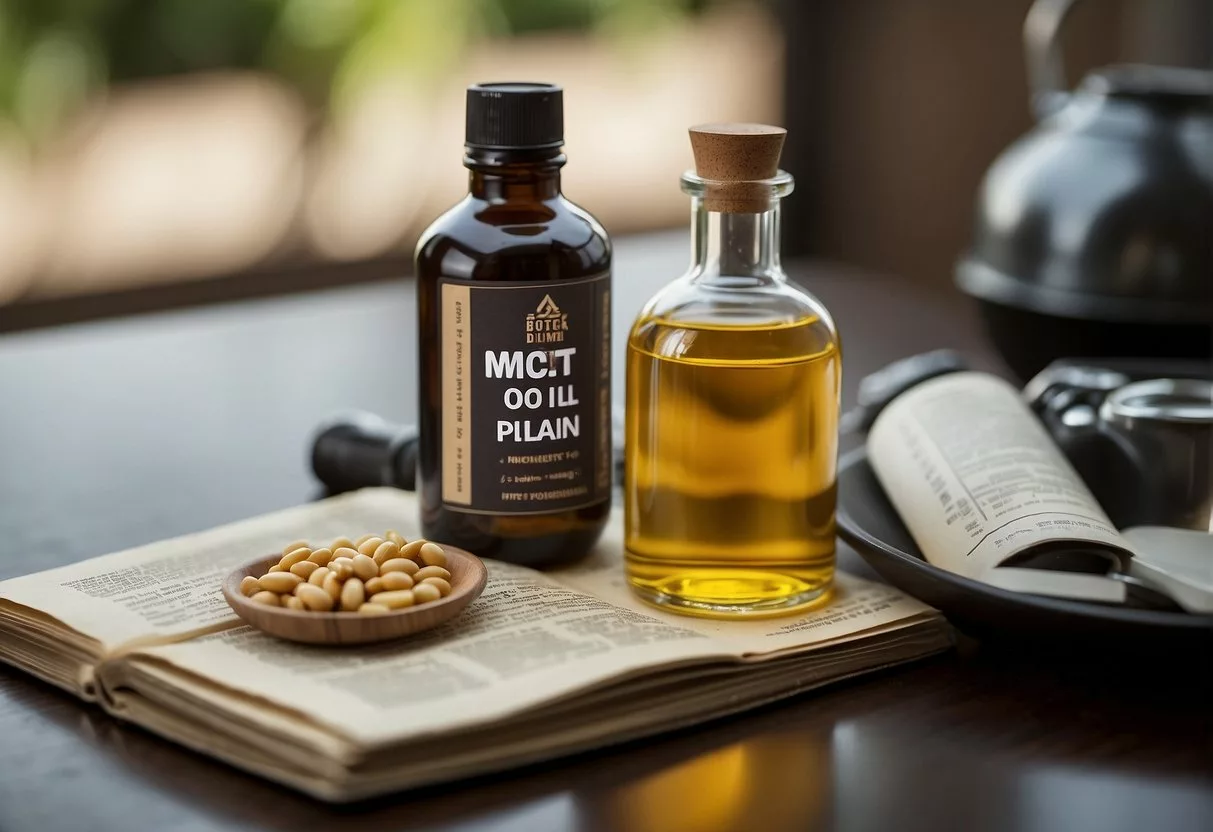MCT oil has become increasingly popular among those following a keto diet due to its unique properties. MCT stands for medium-chain triglycerides, which are a type of saturated fatty acid that is broken down and absorbed by the body differently than other fats. This makes MCT oil an ideal source of energy for those on a keto diet, which is high in fat and low in carbohydrates.

One of the main benefits of MCT oil for those on a keto diet is that it can help to increase ketone levels in the body. Ketones are produced when the body breaks down fat for energy, and they are a key indicator of being in a state of ketosis. By consuming MCT oil, individuals can increase their ketone levels more quickly and efficiently, which can lead to faster weight loss and other health benefits associated with a keto diet.
In addition to its ability to increase ketone levels, MCT oil is also a good source of energy for those on a keto diet. Because it is quickly absorbed and metabolized by the body, MCT oil can provide a quick boost of energy without causing a spike in blood sugar levels. This can be especially helpful for those who are trying to maintain a steady level of energy throughout the day while following a keto diet.
Key Takeaways
- MCT oil can help increase ketone levels in the body, making it an ideal source of energy for those on a keto diet.
- MCT oil is quickly absorbed and metabolized by the body, making it a good source of energy without causing a spike in blood sugar levels.
- Incorporating MCT oil into a keto diet can lead to faster weight loss and other health benefits associated with a keto diet.
Benefits of a Keto Diet

A keto diet is a high-fat, moderate-protein, and low-carb diet that has been shown to have numerous health benefits. Here are some of the benefits of a keto diet:
Improving Metabolic Health
A keto diet can help improve metabolic health by reducing insulin levels and increasing insulin sensitivity. This can help with weight loss and reduce the risk of developing type 2 diabetes. Additionally, a keto diet can help reduce inflammation and improve cholesterol levels.
Weight Loss and Appetite Control
A keto diet can help with weight loss by reducing appetite and increasing satiety. This is due to the high-fat content of the diet, which can help reduce hunger hormones and increase the feeling of fullness. Additionally, a keto diet can help with fat burning, which can lead to a reduction in body fat.
Neurological and Cognitive Benefits
A keto diet has been shown to have neurological and cognitive benefits. It can help improve focus and reduce the frequency of seizures in people with epilepsy. Additionally, a keto diet may help reduce the risk of developing Alzheimer’s disease and improve cognitive function.
Cardiovascular Health
A keto diet can help improve cardiovascular health by reducing triglycerides and increasing HDL cholesterol levels. This can help reduce the risk of developing heart disease and stroke.
Overall, a keto diet can have numerous health benefits, including improving metabolic health, aiding in weight loss and appetite control, providing neurological and cognitive benefits, and improving cardiovascular health.
Understanding Fats and Oils in Keto

When it comes to the ketogenic diet, fats and oils play a crucial role in providing energy to the body. The body needs a certain amount of fat to enter into ketosis, a metabolic state where the body burns fat for fuel instead of carbohydrates. But not all fats are created equal, and understanding the differences between them can help optimize the benefits of the keto diet.
Medium-Chain Triglycerides (MCTs)
Medium-chain triglycerides (MCTs) are a type of saturated fat that are metabolized differently than long-chain triglycerides (LCTs). MCTs are rapidly absorbed by the liver and converted into ketones, making them an excellent energy source for the body during ketosis. MCTs are found in foods such as coconut oil, palm kernel oil, and dairy products like butter, cheese, and yogurt.
MCT oil is a concentrated source of MCTs that can be added to the diet to increase fat intake and promote ketosis. MCT oil is typically made from coconut oil and contains a high amount of caprylic acid (C8) and capric acid (C10), which are the most ketogenic MCTs.
Long-Chain Triglycerides (LCTs)
Long-chain triglycerides (LCTs) are a type of saturated fat that are metabolized differently than MCTs. LCTs are absorbed more slowly by the body and are stored in fat cells for later use. LCTs are found in foods such as meat, dairy products, and vegetable oils.
While LCTs can still be used for energy during ketosis, they are not as efficient as MCTs. The body must first break down LCTs into ketones before they can be used for fuel, which can slow down the process of entering ketosis.
In conclusion, understanding the differences between MCTs and LCTs can help optimize the benefits of the ketogenic diet. MCTs, found in foods like coconut oil and MCT oil, are an excellent source of energy during ketosis, while LCTs, found in foods like meat and vegetable oils, can still be used for energy but are not as efficient as MCTs.
Incorporating Keto into Daily Life

Incorporating a ketogenic diet into daily life can be a challenge, but with a few simple changes, it can be done. One way to incorporate keto into daily life is by adding MCT oil to smoothies, coffee, or salad dressings. MCT oil is a great way to add healthy fats to your diet, as it is a natural source of medium-chain triglycerides.
When incorporating MCT oil into your diet, it is important to be mindful of calories. While MCT oil is a healthy fat, it is still high in calories. It is also important to be mindful of the amount of MCT oil you are consuming, as consuming too much can lead to digestive issues.
Intermittent fasting can also be a helpful tool when incorporating keto into daily life. By fasting for a period of time each day, your body is forced to use stored fat for energy, which can help to enhance exercise performance and increase energy levels.
For athletes, incorporating a low-carb diet and MCT oil into their daily routine can help to improve exercise endurance and performance. A controlled trial published in the Journal of Nutrition found that athletes who consumed MCT oil before exercise had increased exercise endurance compared to those who did not.
In addition to MCT oil, there are other keto supplements and dietary supplements that can be helpful when incorporating keto into daily life. Avocados and nuts are also great natural sources of healthy fats that can be incorporated into a keto diet.
Overall, incorporating keto into daily life can be done with a few simple changes, such as adding MCT oil to smoothies, coffee, or salad dressings, practicing intermittent fasting, and incorporating other healthy fats into your diet. By making these changes, you can improve your energy levels, exercise performance, and overall health.
Frequently Asked Questions

What are the benefits of MCT oil when following a ketogenic diet?
MCT oil is a popular supplement for those following a ketogenic diet due to its ability to enhance ketosis, increase energy levels, and aid in weight loss. It is a source of healthy fats that can provide a quick source of energy for the body, without raising insulin levels.
How does MCT oil enhance ketosis and aid in faster weight loss?
MCT oil is a form of saturated fat that is metabolized differently than other types of fats. When consumed, MCTs are rapidly absorbed by the liver and converted into ketones, which are then used by the body for energy. This process can enhance ketosis, which is the metabolic state where the body burns fat for fuel instead of glucose. Additionally, MCT oil has been shown to increase satiety and reduce appetite, which can aid in weight loss.
What is the recommended dosage of MCT oil for optimal weight loss on a keto diet?
The recommended dosage of MCT oil varies depending on the individual’s needs and tolerance. It is recommended to start with a small amount, such as 1 teaspoon per day, and gradually increase the dosage over time. Most people can tolerate up to 1-2 tablespoons of MCT oil per day, but it is important to listen to your body and adjust the dosage as needed.
Can MCT oil cause any side effects during a ketogenic diet?
While MCT oil is generally well-tolerated, some people may experience digestive issues such as diarrhea, nausea, or abdominal cramping when consuming large amounts. It is also important to note that MCT oil is high in calories, so it should be consumed in moderation as part of a balanced diet.
What is the best time to take MCT oil to maximize its benefits on a keto diet?
MCT oil can be consumed at any time of day, but many people find it beneficial to take it in the morning or before a workout to increase energy levels and enhance performance. It can also be used as a replacement for other cooking oils or added to smoothies and other recipes.
How does MCT oil compare to coconut oil in the context of a ketogenic diet?
Coconut oil is a natural source of MCTs, but it contains lower concentrations than MCT oil. While both can be beneficial for those following a ketogenic diet, MCT oil is a more concentrated source of MCTs and may be more effective at enhancing ketosis and aiding in weight loss.
To get your Customized Keto Diet Plan NOW, please take this quiz.
To get 3 Keto Cookbooks for FREE, go here.
